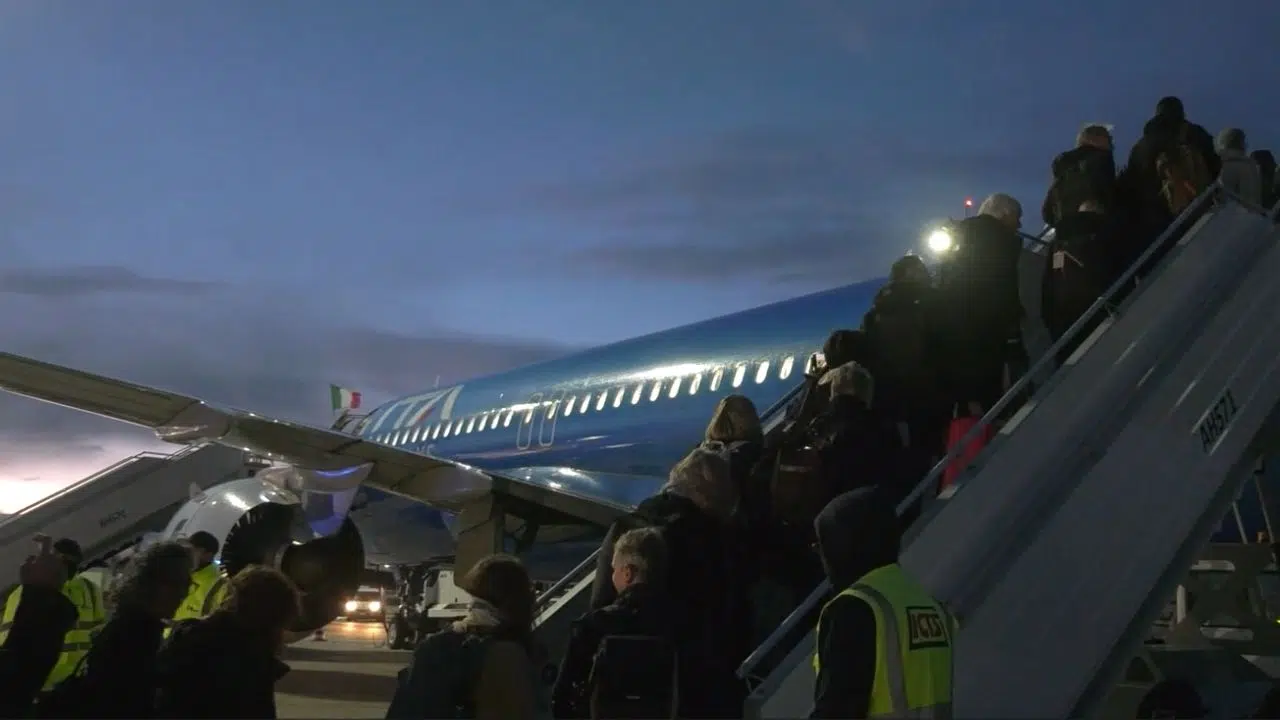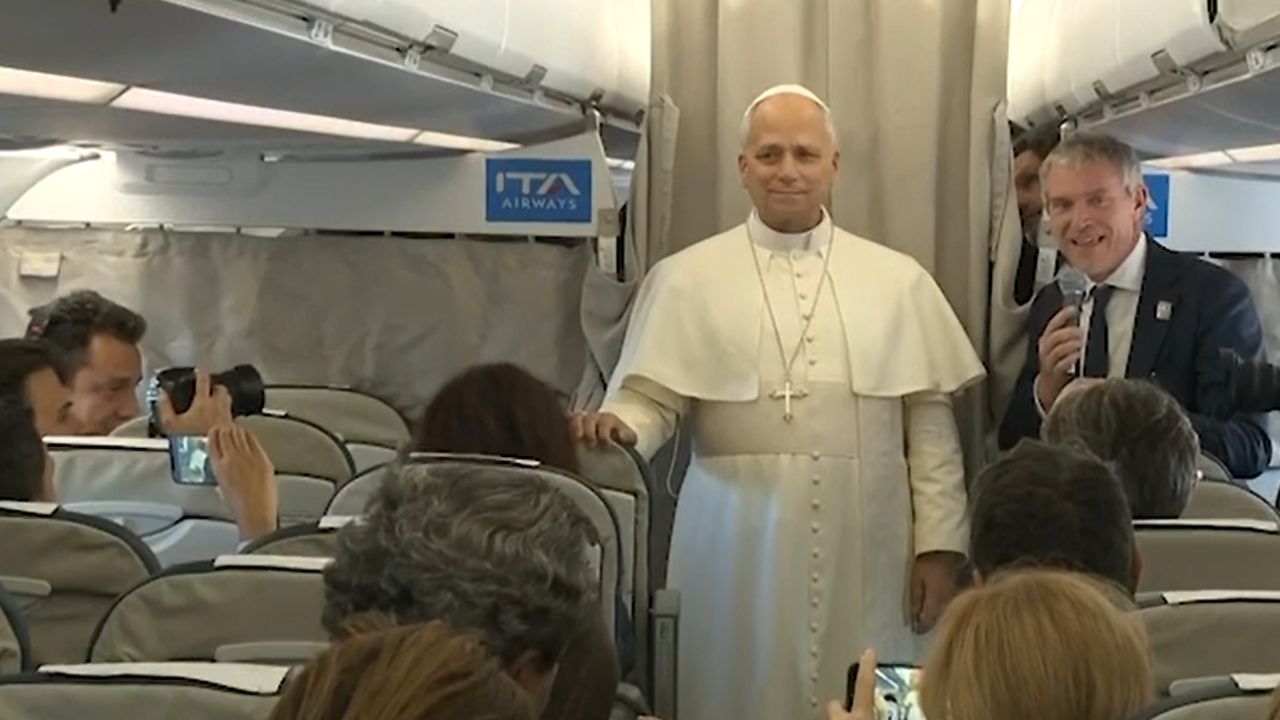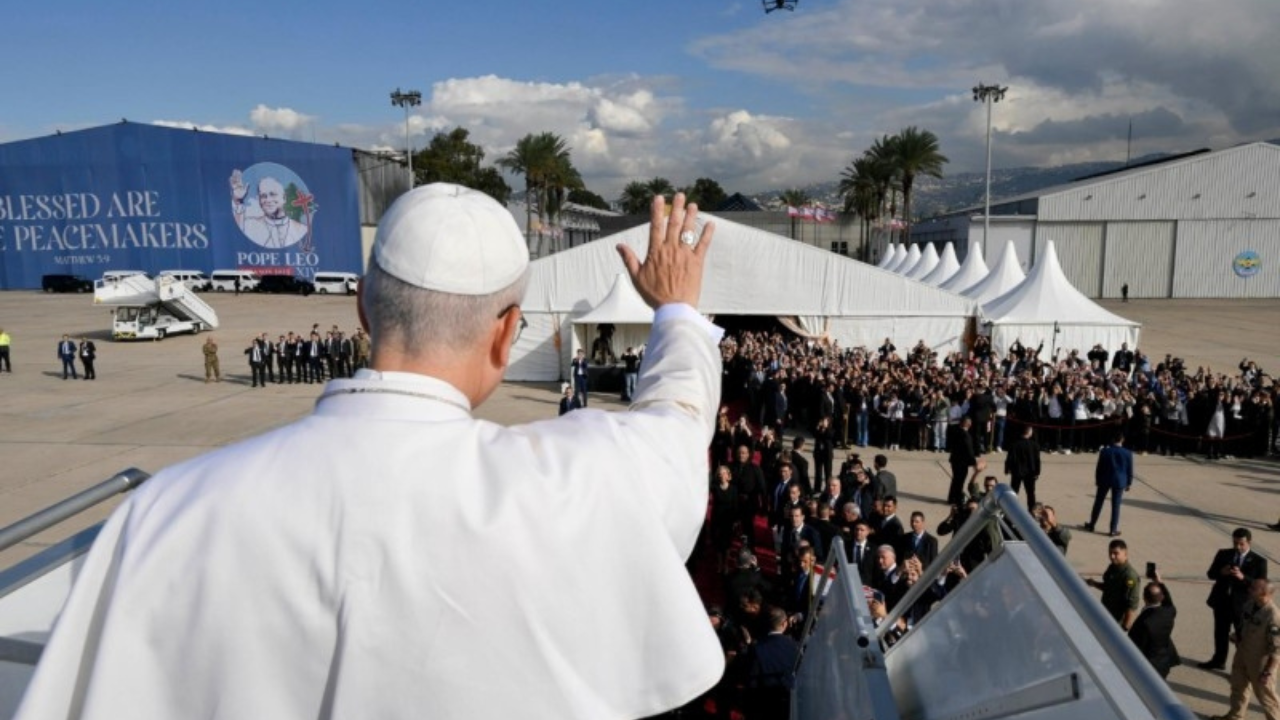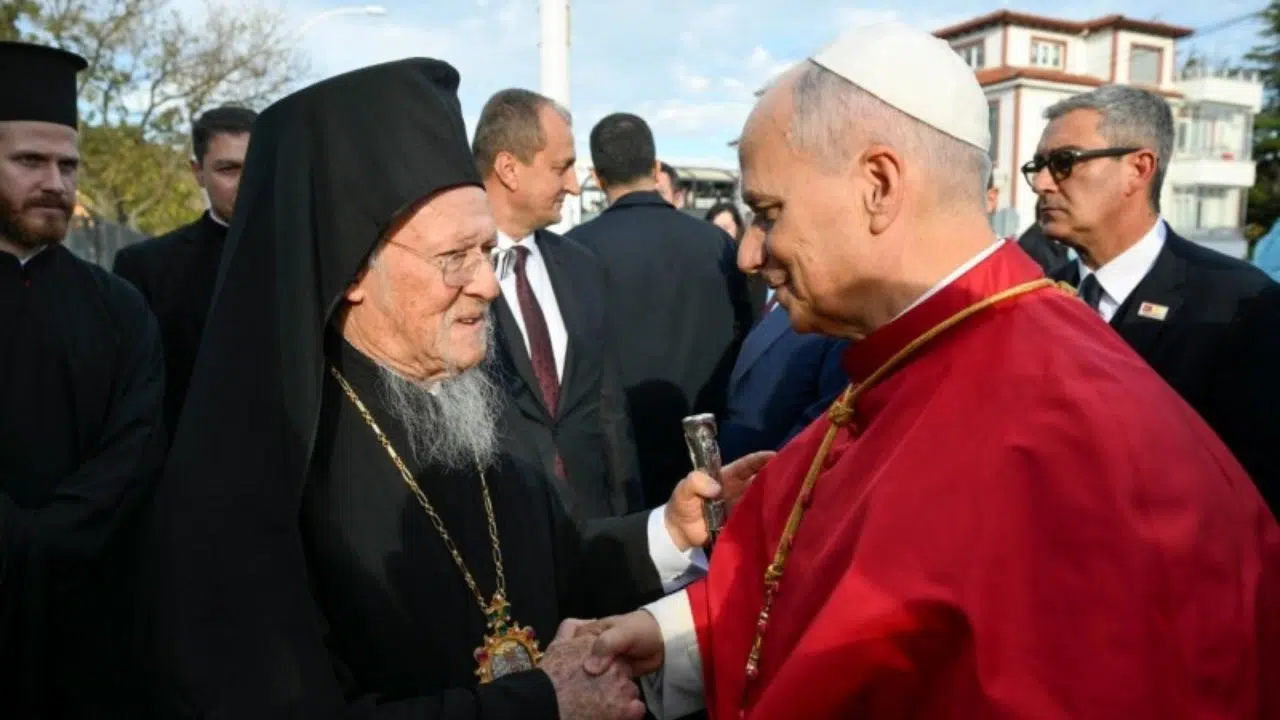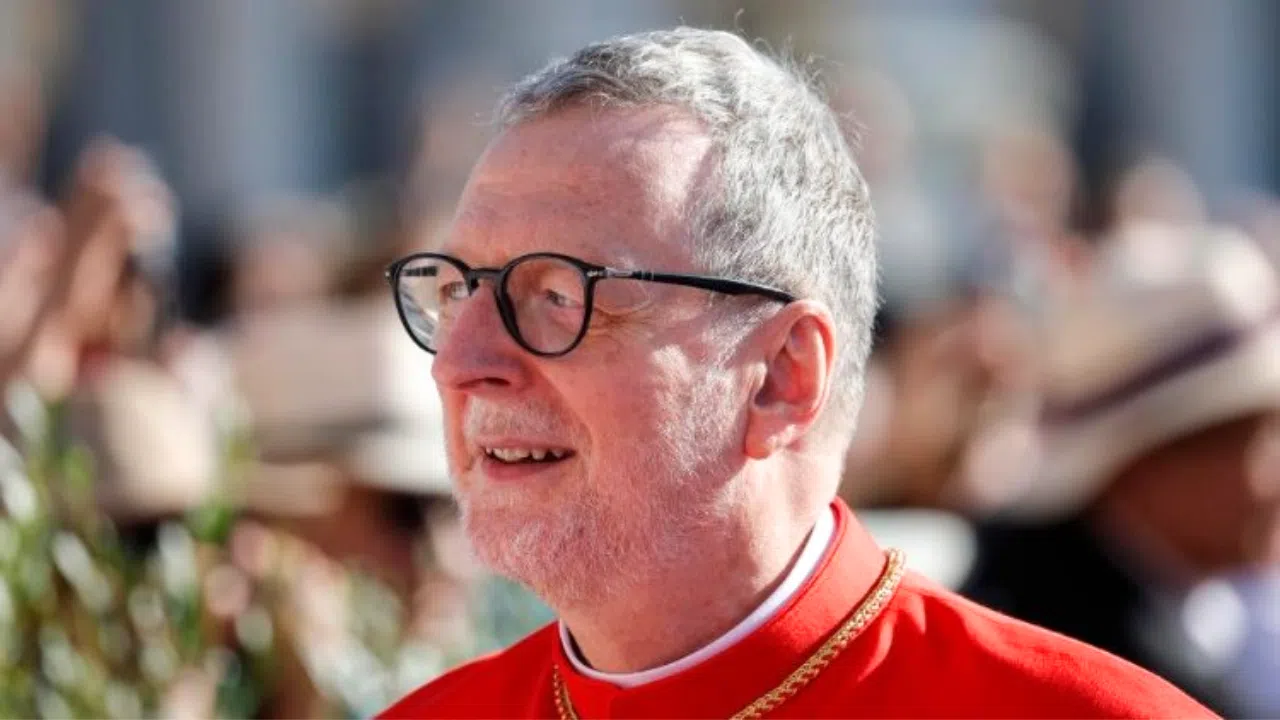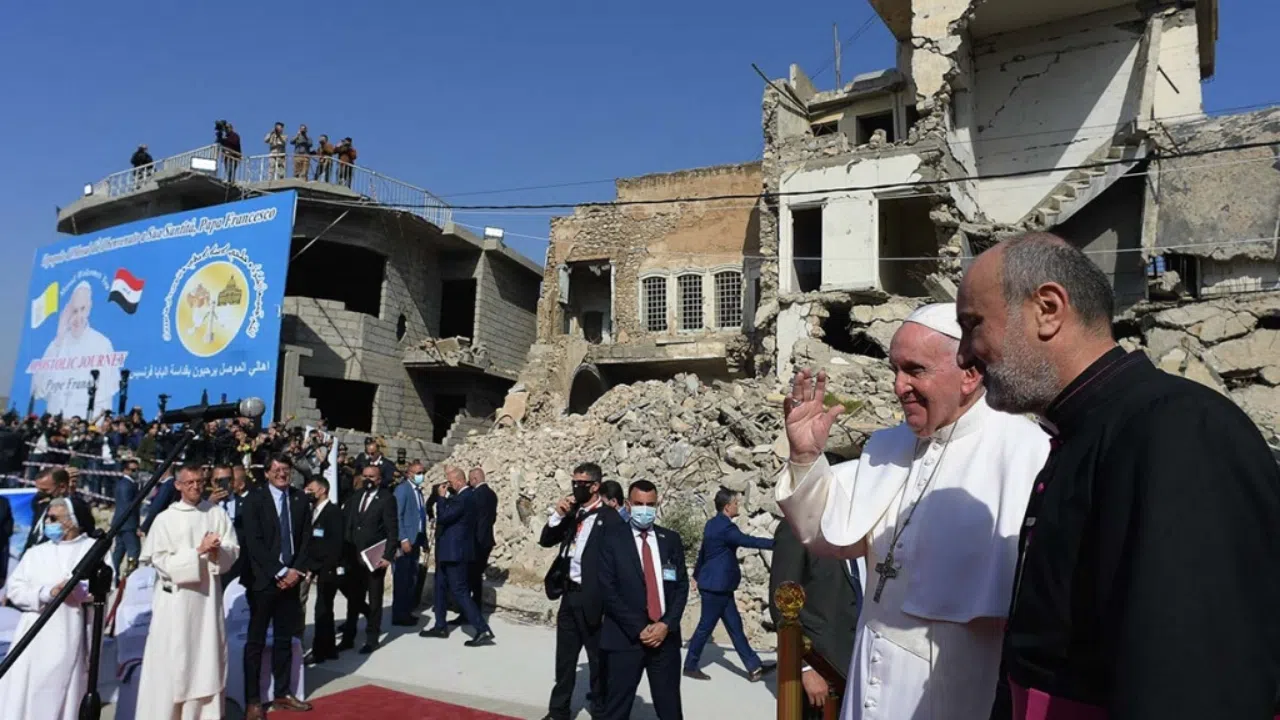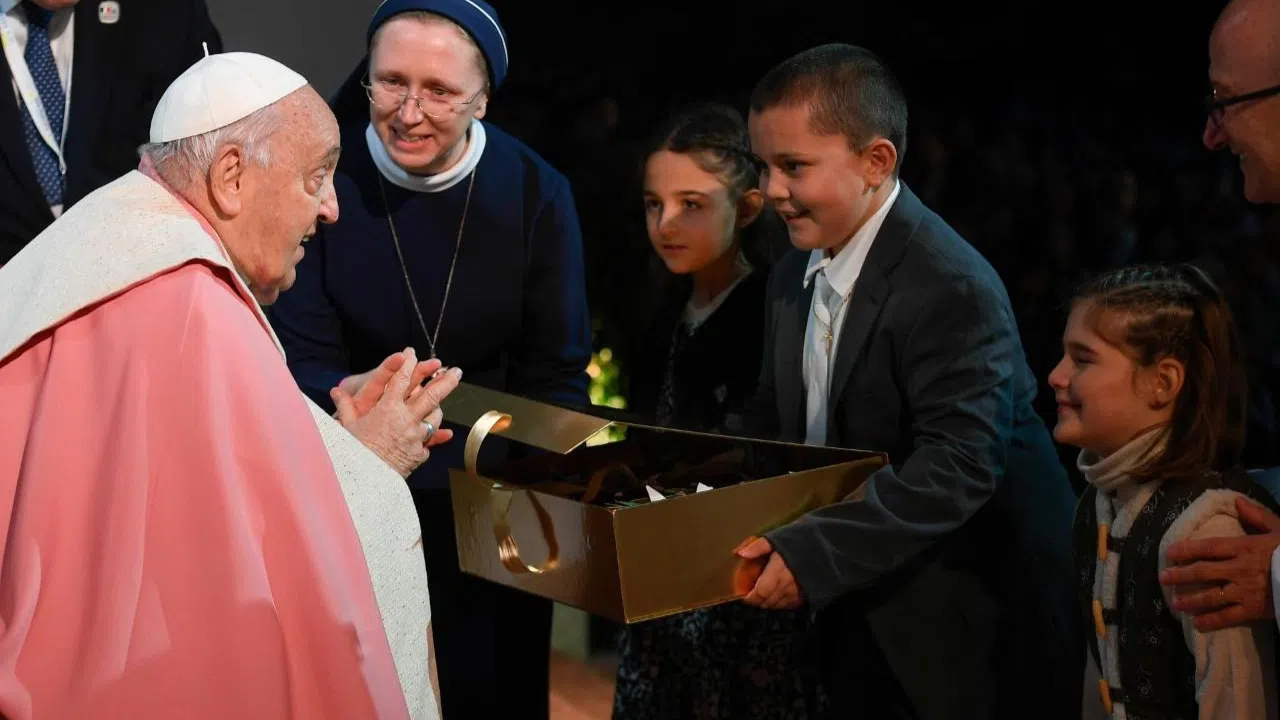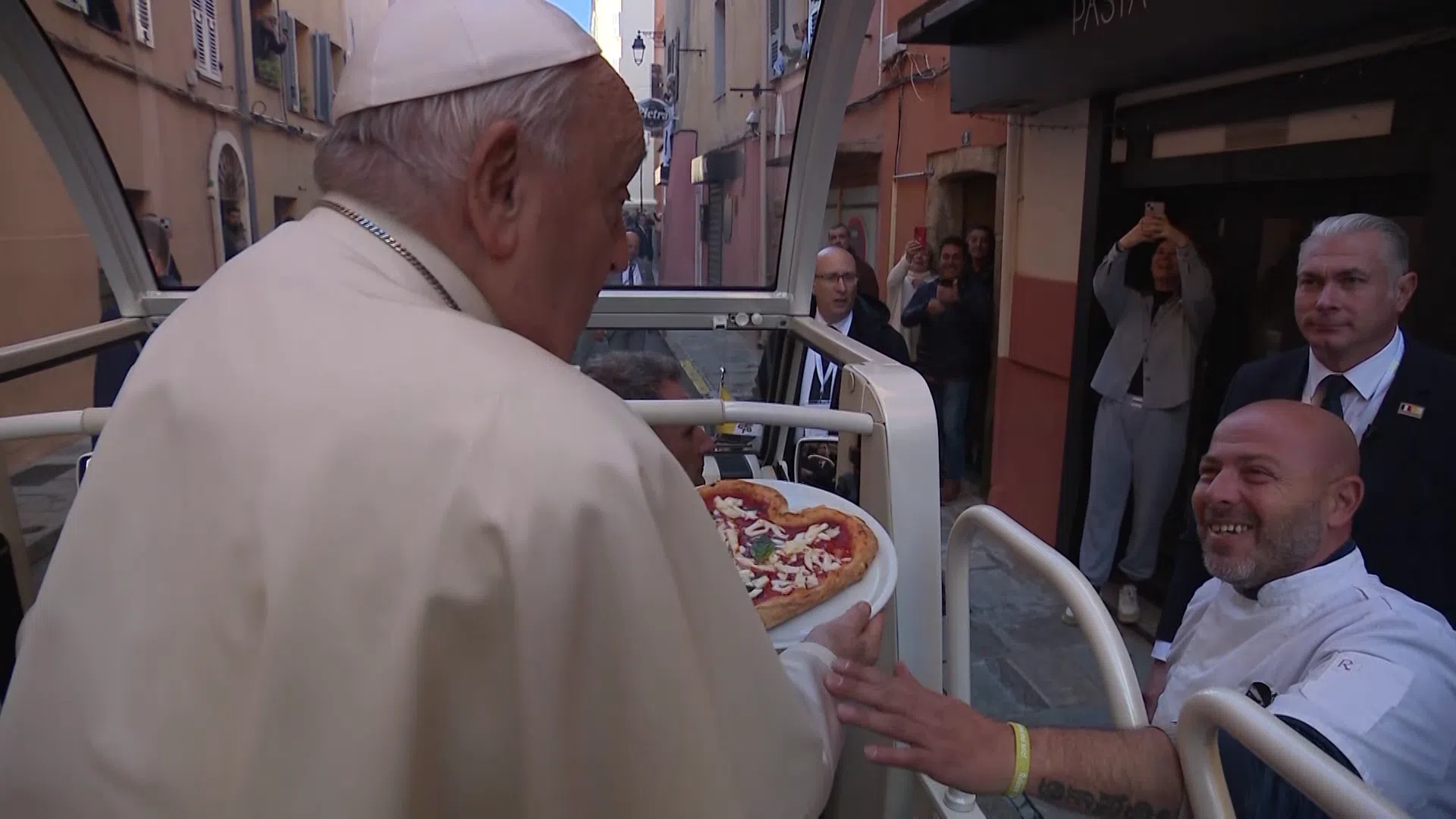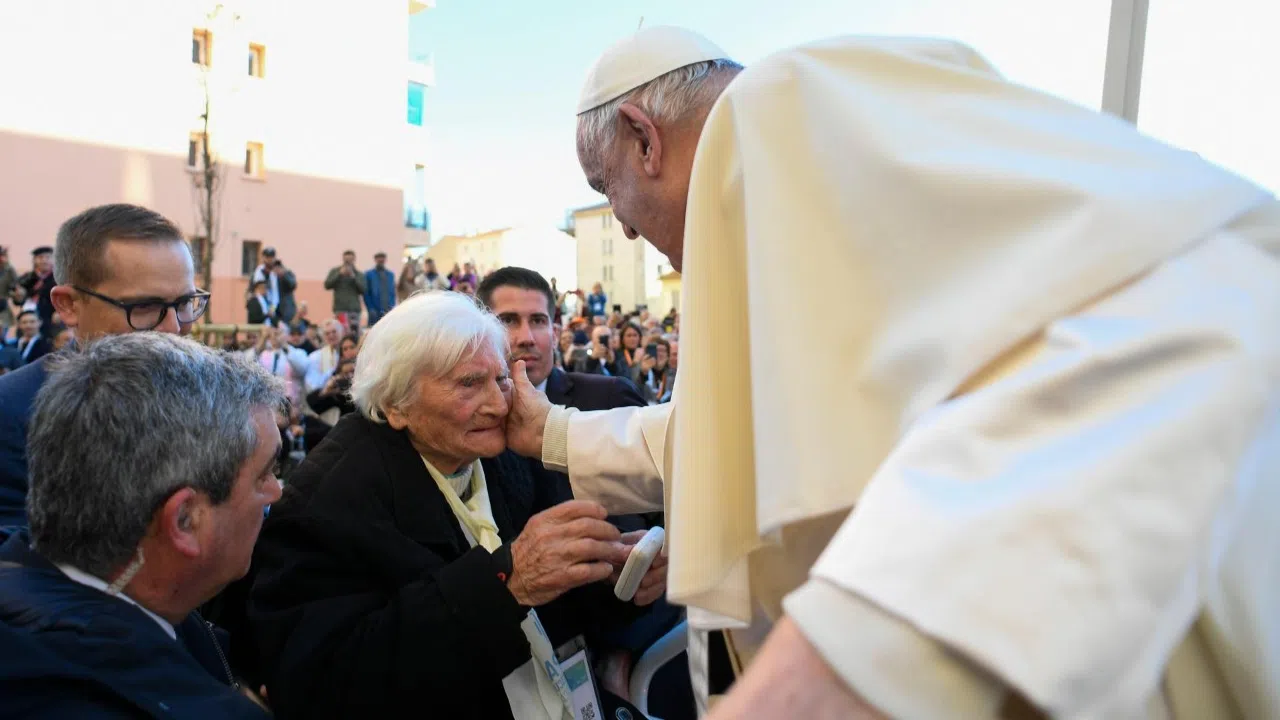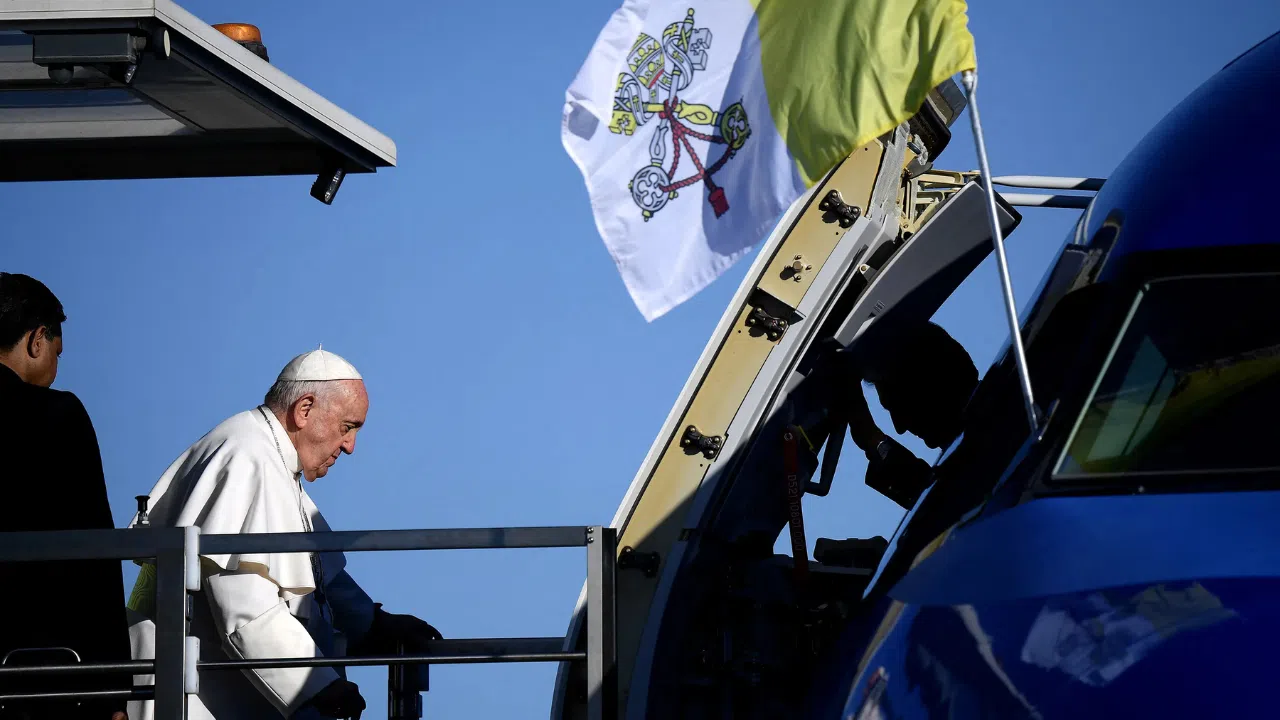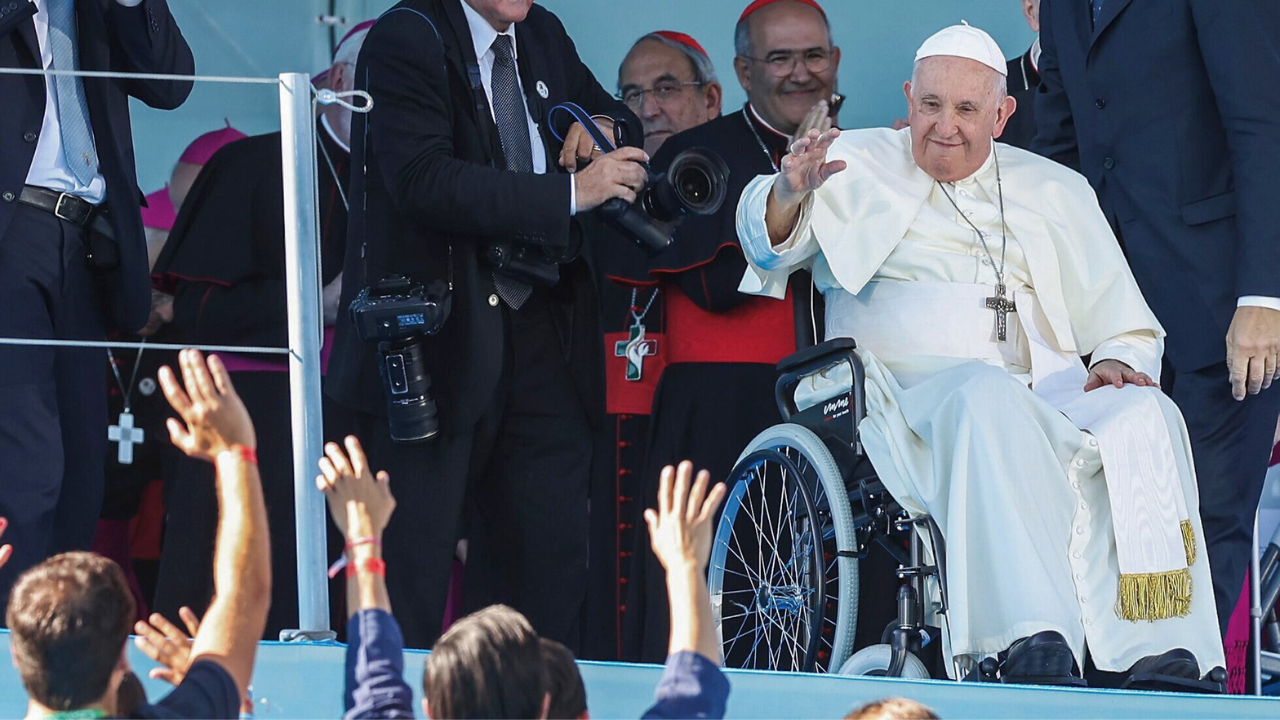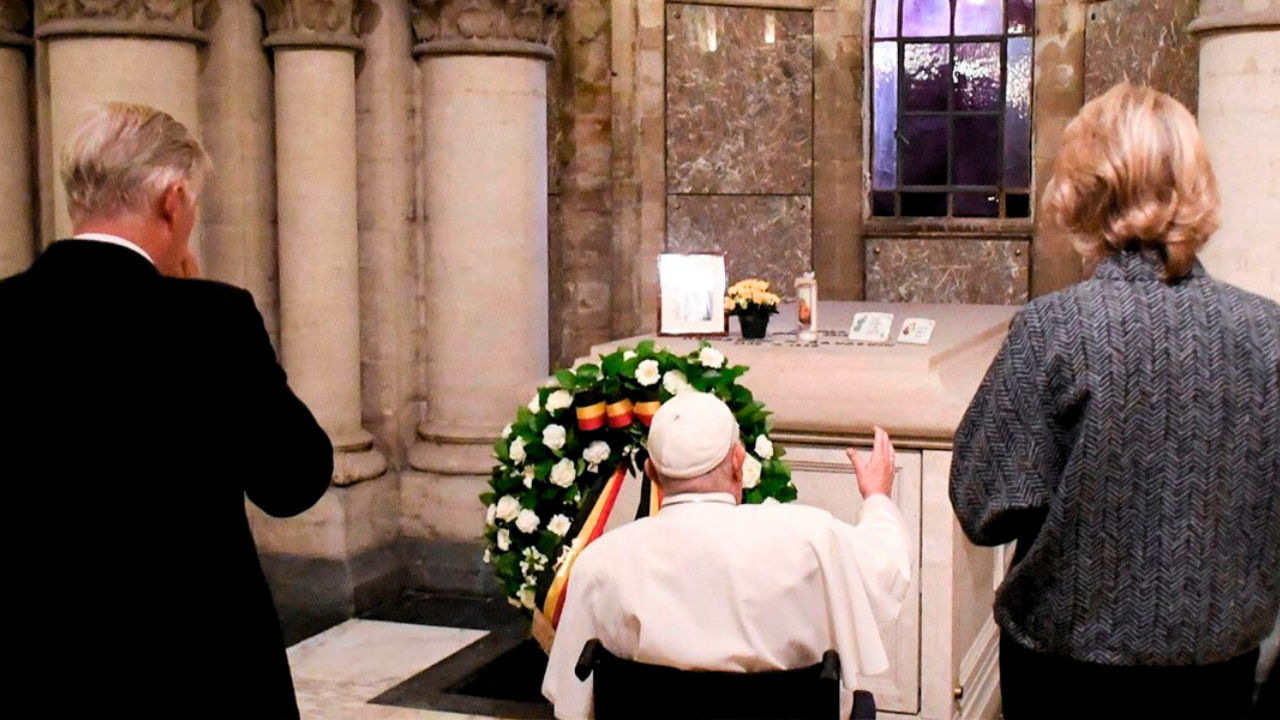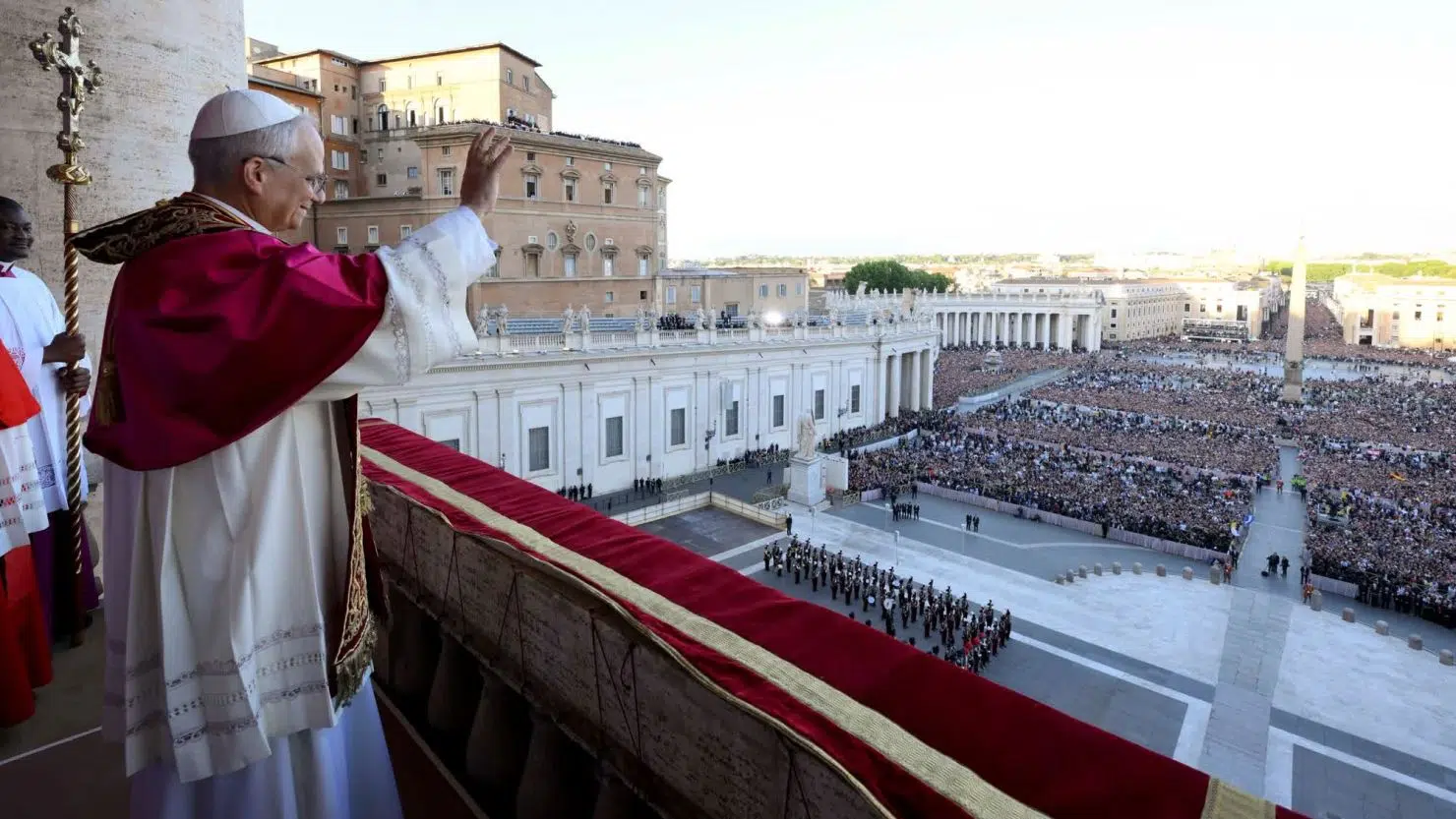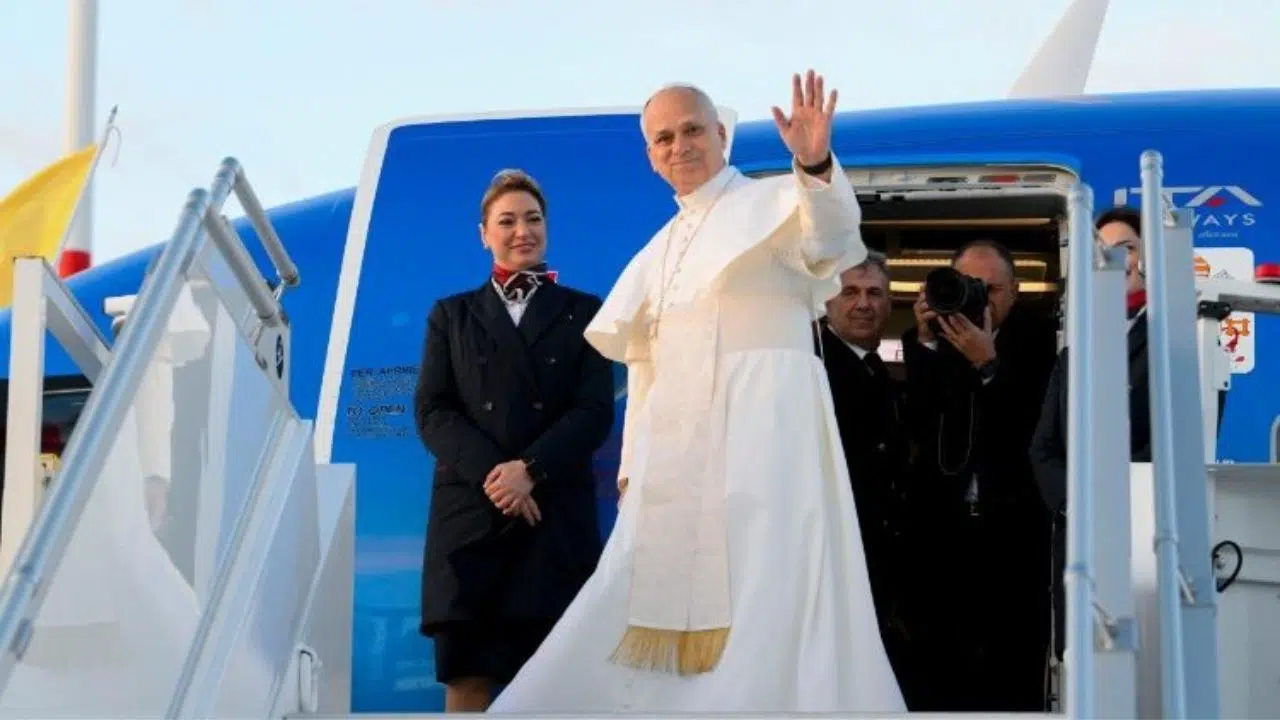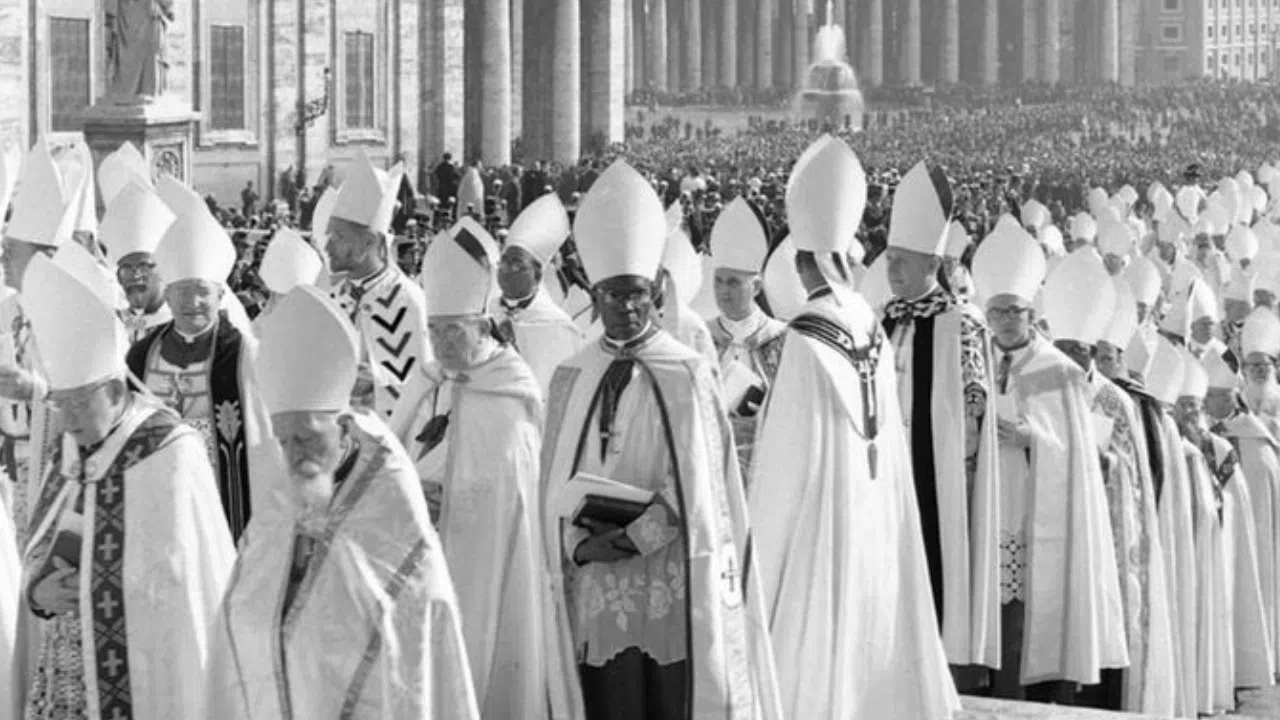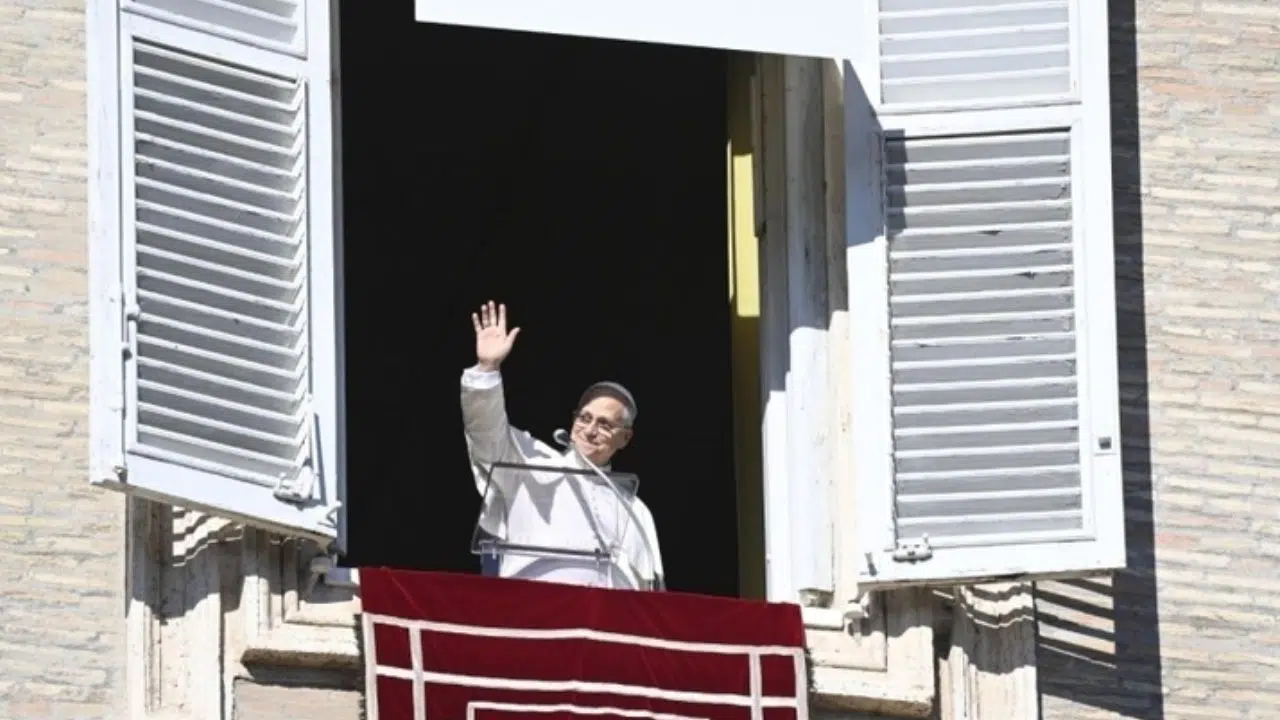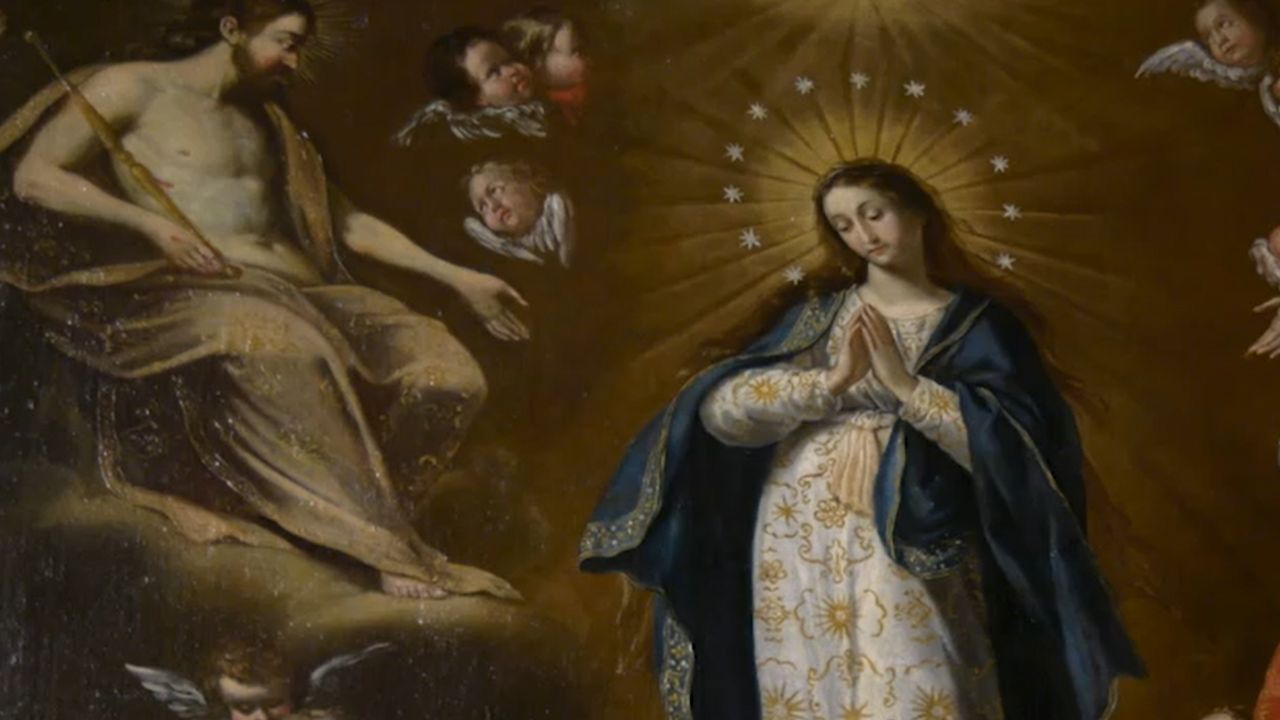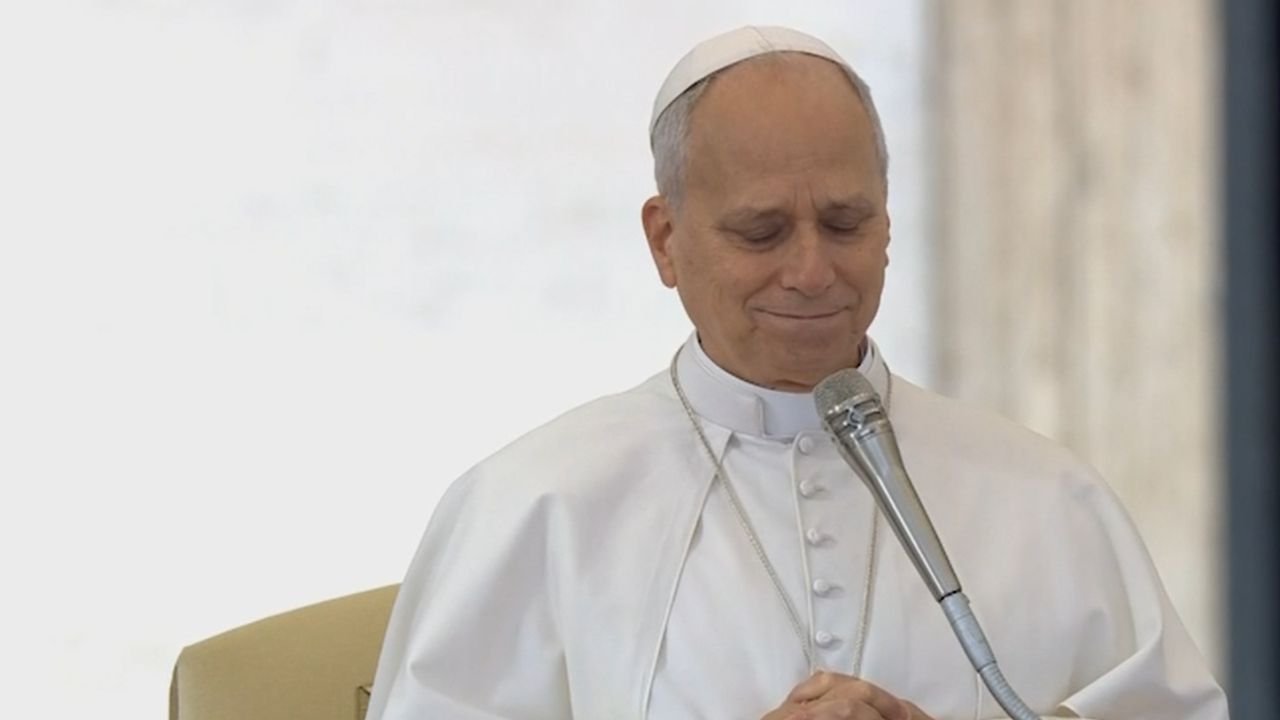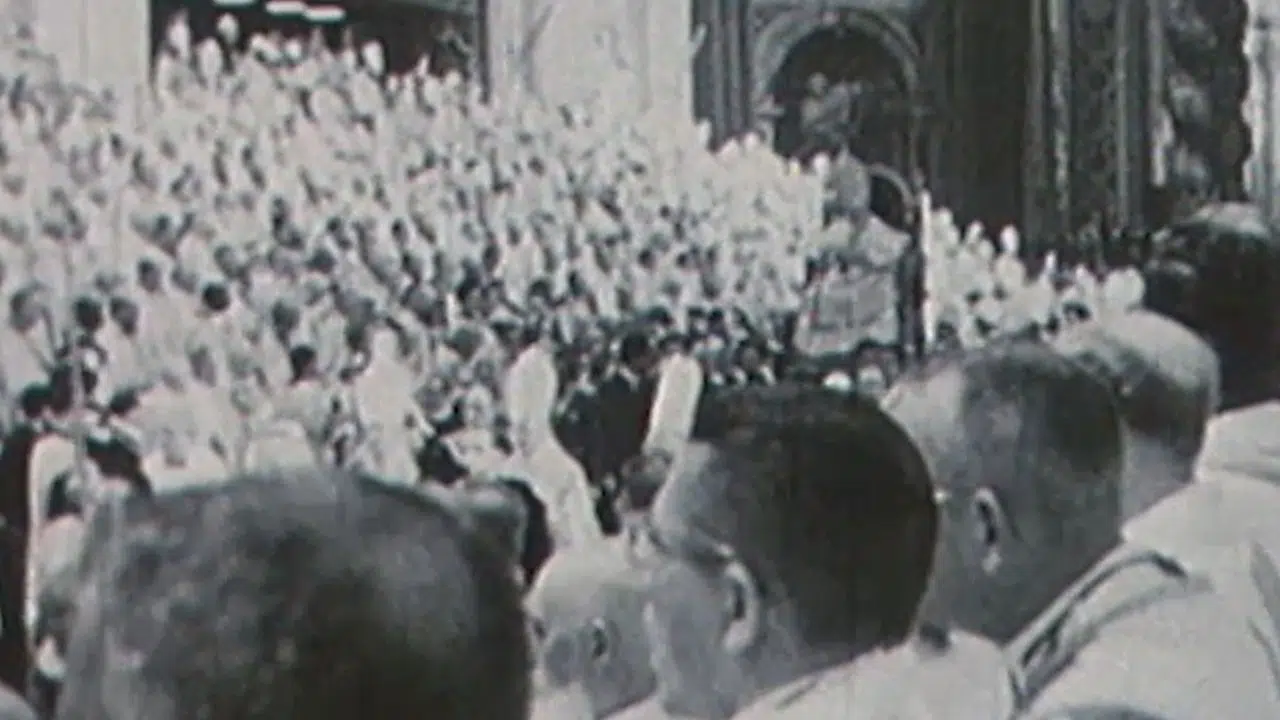The pope traveled to the holy city of Najaf, the third most important city for Shia Muslims. It houses the tomb of Muhammad's son-in-law, making it an important pilgrimage site for Muslims.
Pope Francis was welcomed by authorities and children who gave him white and yellow roses, the colors of the Vatican flag.
In another part of the city, white doves were released as a sign of peace.
After a drive through the narrow streets of Najaf, the pope reached the residence of Grand Ayatollah Ali al-Sistani, leader of the Iraqi Shia community, which makes up more than 60 percent of the population. Al-Sistani is a key figure of Shi'ism, one of the two main branches of Islam.
The 45-minute meeting was held in the religious leader's modest home, where he welcomes people from all walks of life.
Pope Francis highlighted the importance of fostering friendship between religions and cultivating respect and dialogue to positively contribute to the good of Iraq, the region and all humanity.
The pope thanked the Grand Ayatollah and all Shia Muslims who have raised their voices to defend the weakest and those who have faced persecution during the last years.
The Shia leader in turn, affirmed his interest in seeing “Christian citizens living like all Iraqis in peace and security while preserving all their constitutional rights.”
In 2014 Ali al-Sistani condemned ISIS. His action contributed to the fall of the self-proclaimed Islamic State and proved the weight of his moral influence in the Islamic world, showing that there is a foundation to initiate a dialogue.
Daniel Díaz Vizzi
